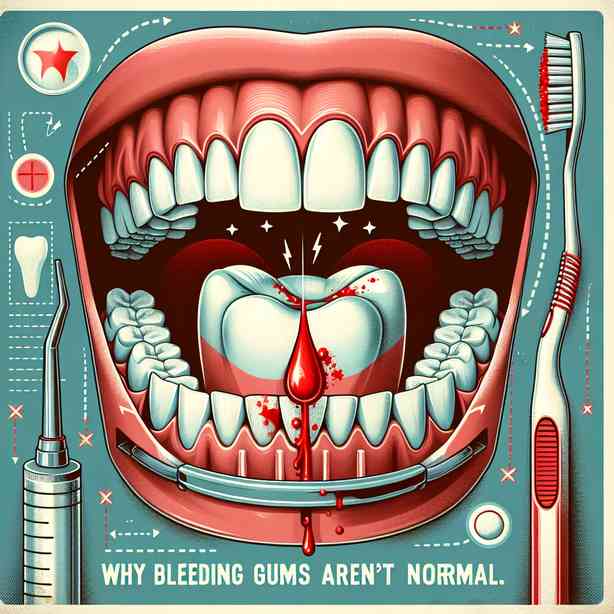
Bleeding gums can often be overlooked as a minor issue, yet they are often a sign of underlying health concerns that should not be ignored. Many individuals might dismiss the occasional bleeding as a result of brushing too hard or minor dental irritations, but it is essential to understand that healthy gums should not bleed at all. The presence of bleeding gums typically points to gum disease, also known as periodontal disease, which can progress from mild gingivitis to more severe forms that can affect the overall health of your mouth and even your body.
Gingivitis, the initial stage of gum disease, is characterized by inflammation of the gums due to plaque buildup. This condition usually manifests with symptoms such as redness, swelling, and occasionally bleeding during brushing or flossing. At this stage, it is often reversible with proper oral hygiene, including regular brushing, flossing, and professional dental cleanings. However, if left untreated, gingivitis can advance to periodontitis, which involves damage to the bone that supports the teeth, possibly leading to tooth loss.
Additionally, there are several factors that can contribute to the development of bleeding gums. Poor dental hygiene is a primary contributor, making it crucial to establish a routine that includes daily brushing and flossing. Smoking and tobacco use can significantly increase the risk of gum disease as they negatively affect blood flow to the gums, making it harder for them to heal. Furthermore, certain medical conditions, such as diabetes, blood disorders, and hormonal changes during pregnancy or menstruation, can also make individuals more susceptible to gum problems.
It is important to note that bleeding gums can serve as an indicator of systemic health issues. Studies have shown a connection between gum disease and other serious health conditions, including heart disease, diabetes, and respiratory diseases. The inflammation resulting from gum disease can enter the bloodstream, potentially leading to inflammation and issues in other parts of the body. Therefore, it is crucial to take any signs of gum bleeding seriously and consult a dental professional for a proper evaluation.
In addition to maintaining good oral hygiene practices, preventive measures should be taken to improve gum health. Regular dental check-ups are essential, as they allow for early detection of any issues and professional cleaning to remove plaque and tartar buildup. Your dentist may also recommend additional treatments, such as scaling and root planing, to address more severe gum disease.
Another critical aspect to consider is nutrition. A balanced diet rich in vitamins and minerals can significantly affect overall oral health. For instance, vitamin C is essential for the maintenance of healthy gums, as it plays a vital role in the production of collagen, a key protein in gum tissue. Including foods rich in vitamins A, C, D, and calcium can help support gum health. Staying hydrated is equally important; adequate water intake helps keep the mouth moist, aiding in the natural cleansing process.
Moreover, chronic stress can also impact gum health. Stress can lead to hormonal changes that increase inflammation and can contribute to poor oral habits, such as grinding teeth or neglecting dental care. Implementing stress management techniques, such as meditation, yoga, or regular exercise, can benefit not only your mental health but your oral health as well.
If you notice bleeding gums, it is essential to pay attention to your oral routine and make necessary adjustments. Over the counter mouth rinses might offer temporary relief, but they are not a substitute for professional care. The goal should be to identify and address the root cause of the bleeding rather than merely alleviating the symptoms.
In conclusion, while bleeding gums might seem like a minor inconvenience, they can signal a significant health issue that requires attention. Taking proactive steps toward oral health can help prevent gingivitis and more severe gum disease. Maintaining proper oral hygiene, seeking regular dental care, eating a nutritious diet, and managing stress are keys to fostering healthy gums and, ultimately, a healthier body. If you experience persistent bleeding or other gum issues, please consult with your dentist to discuss the best course of action. Your oral health is crucial not just for a bright smile, but for your overall well-being.


